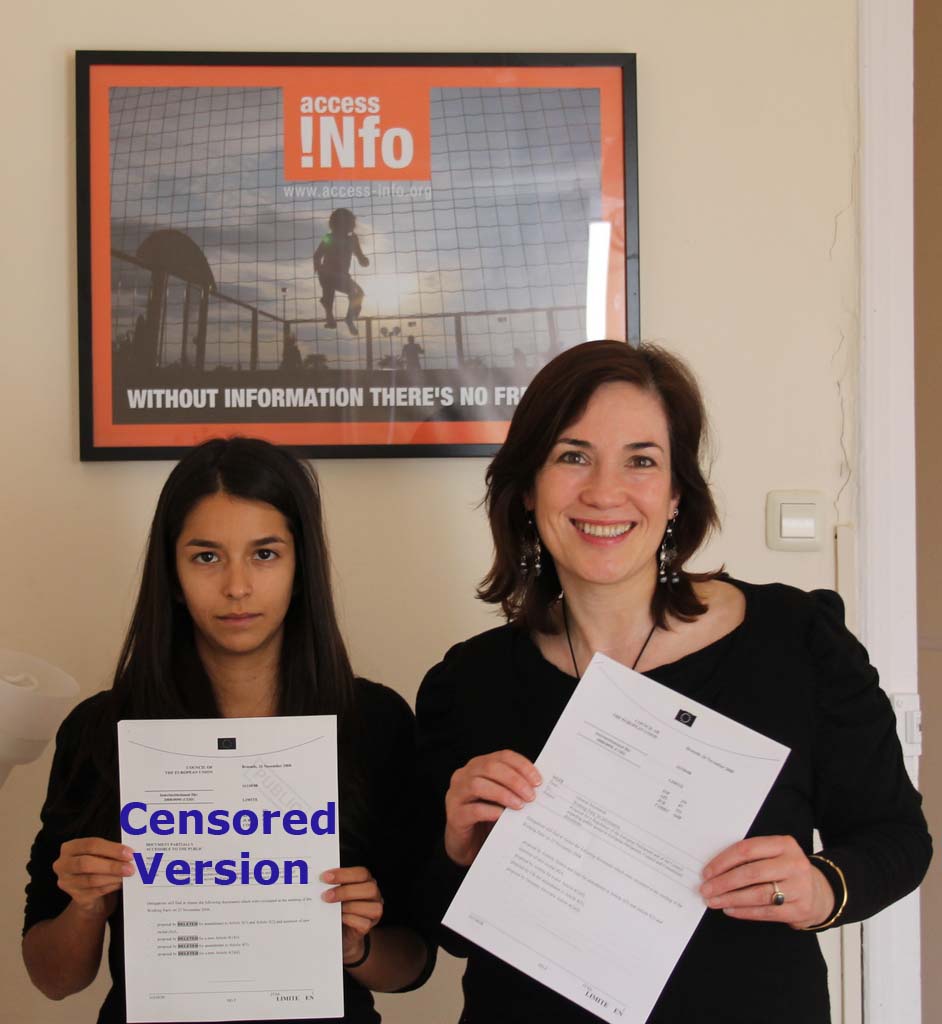The Council of the European Union defends its appeal in Luxembourg. On Thursday 21 February, the litigating parties in the Access Info Europe case appeal convened at the Court of Justice of the European Union in Luxembourg for a hearing. This marks the next step in this case, since the the Council contested the General Court’s ruling by bringing an appeal.
The GC’s 2012 judgement in Access Info Europe caused a stir by affirming the NGO’s assertion that citizens need to be able to attribute policy positions to member states in order to participate meaningfully in European democracy. The practice by the Council to disclose arguments put forward without revealing their originating member states had been in place for some years before AIE challenged it. It is seen by the Council as an acceptable compromise between the requirements of democratic participation and those of effective decision-making. Ironically, Access Info Europe was in the process of mapping member state positions in the reform of the access to documents regulation for a report that it was writing, when it stumbled upon this practice.
The subsequent court case and appeal have caused quite a stir, not least among the Council’s members, several of whom (the UK, France, the Czech Republic, and Greece) have intervened on the Council’s side, while the European Parliament intervened on the side of Access Info Europe. The hearing provided a better picture of the various parties’ view in the matter. As Deirdre Curtin has pointed out in a recent blog, it is increasingly difficult for outsiders to follow the litigating parties’ exchange of views in ongoing proceedings before the Luxembourg courts. However, Access Info Europe, which has always made a point of seeking wide publicity for its interactions with the European institutions, has posted its own summary of the hearing on its website, including main arguments extended by both sides.
By all appearances, the two sides of this argument have again reiterated their core claims. Essentially, the conflict can be said to boil down to an “effectiveness v participation” conflict. The Council, and its interveners, argue that it will not be able to expediently come to common positions with disclosure taking place throughout the decision-making process. They further argue that citizens will often not be able to interpret the precise meaning of the documents exchanged during the negotiation process, which will lead to bashing and populism in the news media on the one hand, and grandstanding and elusive practices within the Council on the other. Access Info Europe and the EP in turn extend that disagreement and negative publicity are simply part of the democratic process, and moreover that the current Council practice is incompatible with the rules on access to documents and the case law. The current case, and the actors involved in it, confirms a long-standing division line within and beyond the Council.
For the moment, two questions remain: why are the EU’s (mainly, but not exclusively, Nordic) transparency-friendly member states not involved? And will the Court of Justice of the EU overturn the General Court’s ruling, as it has frequently done in the recent transparency case law, to downplay expectations of citizen involvement raised by the Lisbon Treaty, or will it rather follow the GC’s more innovative line of a “purer” form of participatory democracy? –MH

